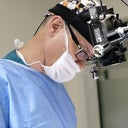Why is it taboo to get a face lift under 40? If there is skin to lift, why not?
I feel there’s this idea that face lift, cheek lift, brow lift, bleph are not acceptable before a certain age. Of course I will do what my surgeon recommended which is to wait, but I’m curious is there any medical reason why you should? Like 30, may not have as much to work with, but what are the downsides to that truly?








